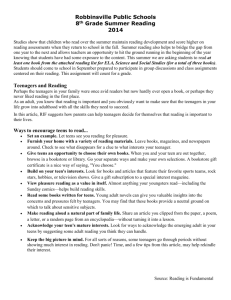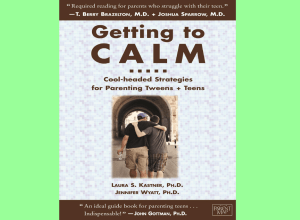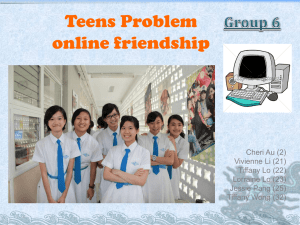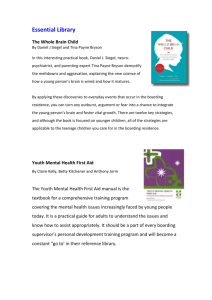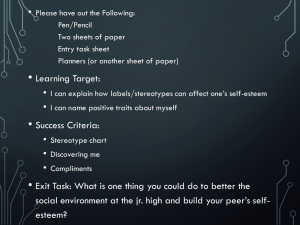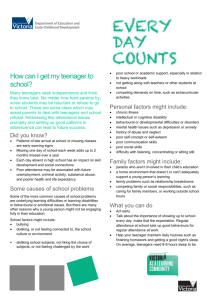Parenting Teenagers
advertisement
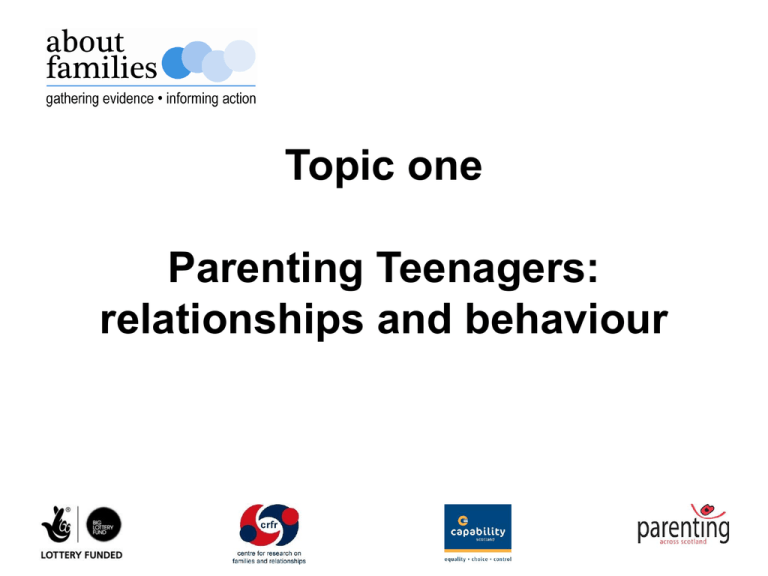
Topic one Parenting Teenagers: relationships and behaviour Why Parenting Teenagers: relationships & behaviour? • Features frequently in calls to parenting helplines • Highlighted by Capability Scotland’s 1 in 4 poll What did we use? • Data from calls to helplines • Review of existing research • Survey of disabled parents and parents of disabled teenagers • Feedback from services and academics on draft report to check relevance What do we know? • Less support for parents of teens • Lots of calls to parenting helplines – time when parents struggle • Disability excluded from most mainstream research on families • Most research on 2-parent heterosexual families • Lots of research on ‘social problems’ less on everyday issues Conflict • Conflict can be useful for teen development • How, with whom and why conflict happens is important – Privacy boundaries – Learning to manage conflict – Developing emotional responses Conflict • Inter-parental conflict can draw teens in • Parents need support to manage own behaviour and emotions and cope with conflict Questions Is conflict seen as a typical part of growing up? Do parents of boys and girls have different experiences of conflict? How can services support parents with different types of family conflict? Communication and Relationships • Good communication important in families • Can contribute to positive outcomes for teens • The issue of balancing support and control is complex • Not clear where parents would get support to develop communication skills Questions How do services support parents over deciding appropriate levels of supporting and control? How can services help parents to negotiate agreements that work for both sides? Independence • Parents cope best when they can enjoy their teenager’s increasing independence • Parents sometimes feel anxious and rejected which leads them to curtail their teenager’s activities • Parents need support to see growing independence as healthy and appropriate Questions How can parents be supported to be less anxious over independence and understand age-appropriate behaviour? What are the implications for lone parents? Parenting together • Parents agreeing about their approach is more important than who does what • Fathers are less likely to seek formal support and more likely to rely on their partner Questions What are the implications for lone parents? What are the implications for supporting fathers? Divorce and re-partnering • Close relationships with stepfathers tend to follow close relationships with mothers • Teenagers relationships with their fathers are the same after mothers remarry • Negative comments about fathers after separation affect some boys more than others Questions Does family change affect families with teens differently to families with younger children? How can services best communicate with parents over issues around separation and re-partnering? Control and monitoring • Communication often works better than coercion in monitoring teenage activities • Teenagers tell parents less than parents assume • Closeness of relationships and agreement over authority help information sharing • Mobile phones are often used to negotiate movement and curfews Questions How can parents balance their parental authority with respecting privacy? How can parents be supported in keeping up good relationships where sharing information is usual? How can services help in managing expectations over what, and how much, information to share? Families affected by disability Generally a large amount of similarity • Some differences – Both mothers and fathers are more likely to be involved in disabled teen’s life – Enjoy seeing social development – Resources and attitudes can restrain opportunities for development Families affected by disability – Sometimes knowing about their teenagers involves other people more – Impact of disabled parent on teenager – Used mobile phones more – More communication over activities – Wish to ‘protect’ disabled parent What helps parents cope? • • • • Pride in seeing teen develop socially Enjoying the maturation of their child Being supportive Viewing themselves as warm and affectionate to their teenager • Seeing their teenager acquire new skills What now? Discussion groups: 1. Explore implications & identify areas where you think action could be taken 2. How could action be taken? 3. In logbooks – other thoughts, reflections, potential areas for action / development


